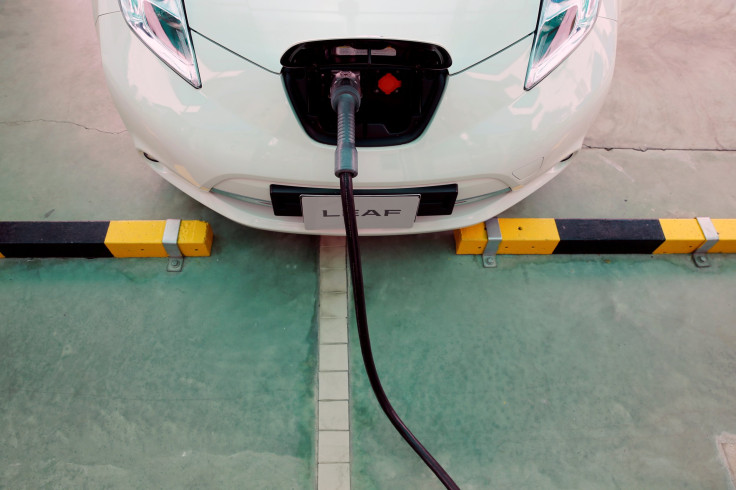Are Electric Cars Really Green? Europe Plans Charging Stations That Are Faster

Beginning next year, electric car drivers will be seeing a lot more e-charging stations in Europe.
Carmakers, including Ford Motor Company, Daimler AG, BMW Group and Volkswagen Group with Audi and Porsche, are working together to create a network of e-charging stations for electric cars throughout Europe, according to a joint announcement Tuesday.
Electric car experts say the environmental benefits to installing the electric car charging stations far outweigh any negatives.
The move, which was also meant to encourage consumers to use electric cars, means drivers can expect more charging stations with “significantly faster charging systems” thanks to upgrades to the current AC and DC charging systems.
“We intend to create a network that allows our customers on long-distance trips to use a coffee break for recharging,” Audi AG’s chairman of the board of management Rupert Stadler said in a press release.
Aside from pluses for the environment, such as reducing pollution from traditional vehicles, electric cars can also help reduce oil consumption, bolster the electric car market and could lead to "incentives to develop charging infrastructure," according to VoxEU.org, which promotes "research-based policy analysis and commentary by leading economists".
The stations are expected to be installed at the beginning of 2017, and 400 different sites across Europe will offer the service. Highways and thoroughfares with the new stations will partially serve as encouragement to electric car motorists to drive long distances without hassle. The automotive companies are hoping to have “thousands” of operating charging stations by 2020, according to the release.
With Tesla being a major leader in zero-emissions vehicles, carmakers are also looking to mass-market electric vehicles and charging stations that could become as ubiquitous as regular automobiles and filling stations.
“A reliable, ultra-fast charging infrastructure is important for mass consumer adoption and has the potential to transform the possibilities for electric driving,” Ford Motor Company’s president and CEO Mark Fields said in a statement.
The DC, or direct current charging stations, will be able to charge electric vehicles up to 350 kilowatts, and all stations will be able to service Combined Charging System cars. Charging times for electric cars at home depend on the vehicle, outlets and batteries, but charging is typically done overnight. DC quick charging systems have been proven to be the fastest method to charge an electric car. DC charging stations can charge vehicles in under an hour, typically between 10 and 30 minutes.
It was not immediately clear which cities and countries would be getting the new e-charging stations.
BMW Group has worked to amass public e-charging stations in the past, and Daimler AG is aiming to have “more than 10 fully electric passenger cars” on its product roster by 2025, according to Daimler AG’s chairman of the board of management and head of Mercedes-Benz Cars.
© Copyright IBTimes 2024. All rights reserved.






















